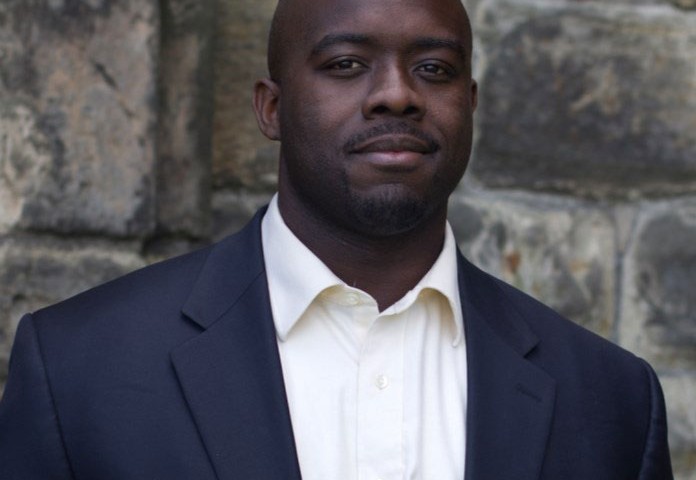When I was invited to contribute to the series, What makes a good Biblical Scholar or Theologian?, I decided to do something a bit different. While I have my opinions on exegetical method, there are a multitude of scholars who can provide more substantial insight in that area, as previous posts in this series will attest. I want to address, instead, a group that rarely receives direct advice. Here in mind I have scholars of color and women scholars.
Again, I face a limitation. I do not know what it is like to be a woman in biblical studies nor can I speak to the experiences of Latinos or Asians. I cannot even claim to speak of the experiences of all black folks. What follows then is the perspective of one black male who has lived in this world of academia for over a decade. I also write from the perspective of a clergy person, which might be becoming something of a rarity in Biblical studies.
First: Young Scholar, You Are free!
It may not seem like it. People will come to you with lists of all the articles you must publish, the publishers you must seek out, the topics you must pursue, and the ones you must avoid. This advice will come from two seemingly different directions.
Some will tell you to avoid anything directly related to your culture to avoid being pigeon-holed. They will tell you that you don’t want to be seen as an African‐American or Latino or female scholar, but a biblical scholar. But the choice not to directly concern yourself with the needs of your people might itself be a sign of the privilege to actually do just that. We are all located. Some of us might just be more honest about it than others. If you were drawn to biblical studies with a particular concern for the issues facing your people or your gender, do not give up on that calling.
The second temptation will come from the other direction. All our varied groups have their own orthodoxies in biblical and theological studies. These academic orthodoxies might even be different from the church communities they serve. You will be tempted to flee from one canon (that of the mainstream academy) to another. But I would encourage you to engage your tradition, like we engage all traditions critically. Learn from those who have preceded you, but expand the conversation and feel free to strike out on your own.
You are also free to focus on relatively traditional questions. It is okay to put your hand to the plough and till the soil of Pauline exegesis. It is okay to consider the Synoptic Problem or even (God forbid!) the Catholic Epistles or the Book of Revelation! This means that you might have the blessing or the curse of having to become fluent in two fields: traditional biblical studies and its relevant subfields, as well as your ethnic theological community and the varied disciplines that attach to it.
Second: You Will Be Treated as a Commodity and a Danger
Be prepared to be viewed as both a commodity and a danger. You are in a field that historically has been white and male. This will mean that some institutions will be interested in hiring you to address that imbalance. But there is a difference between wanting diversity and wanting you.
Assuming you have options (it’s rough in these academic streets), make sure that it is you that they want. This means that if you want to write about the Synoptic Problem and they want you to be the champion of your gender in the discipline, then there will be problems. If you want to write about the intersection of ethnicity and exegesis, but they want a “traditional” scholar, then there will be problems.
A second truth follows on from this. Some of your fellow colleagues will view you as a danger. They will assume that you were hired because of your ethnicity or gender alone. These voices will only grow louder in the current job market. This will remain true despite the fact that you will look around and see very few folks like you in your department or at conferences. It will probably be the case that you are the only person of your ethnic group at your institution. You be blessed if there are two of you. Three will be a minor miracle. This will mean that you will be lonely at times, and it will be necessary to reach beyond your institution for sources of support.
Third: Remember the Church!
Here I claim that privilege of speaking as a Christian clergyperson. You might be tempted to prove yourself in the academy. You might want to show those who think that you are here because of your gender or ethnicity that you belong. Then there is the question of tenure or even acquiring a job in the first place. These concerns can drive you to pursue only academic outlets and focus on that aspect of your career.
But if you are a person of faith, then it is likely the case that you were drawn to your discipline because you were, to steal the phrase from Richard Hays, “thunderstuck” by the Scriptures. Yes, we have an academic and ecumenical audience, but there are the gathered laypeople and clergy who also deserve our attention. These are the folks who first taught us these texts and they deserve some share in the fruits of their efforts on our behalf.
We function in an ecumenical discipline in the broadest sense of the world. There are folks from every major religious tradition as well as those with no religious belief at all studying these same texts. Our ecumenical friends are more than happy to share their doubts and concerns with the wider world. It might be a welcome boon if the churches that shaped us might receive some encouragement from our scholarship.





